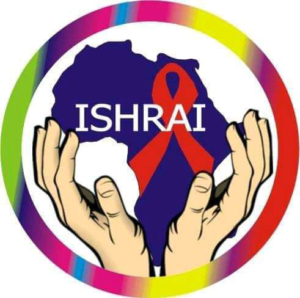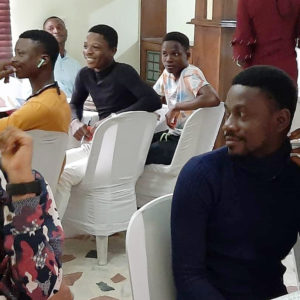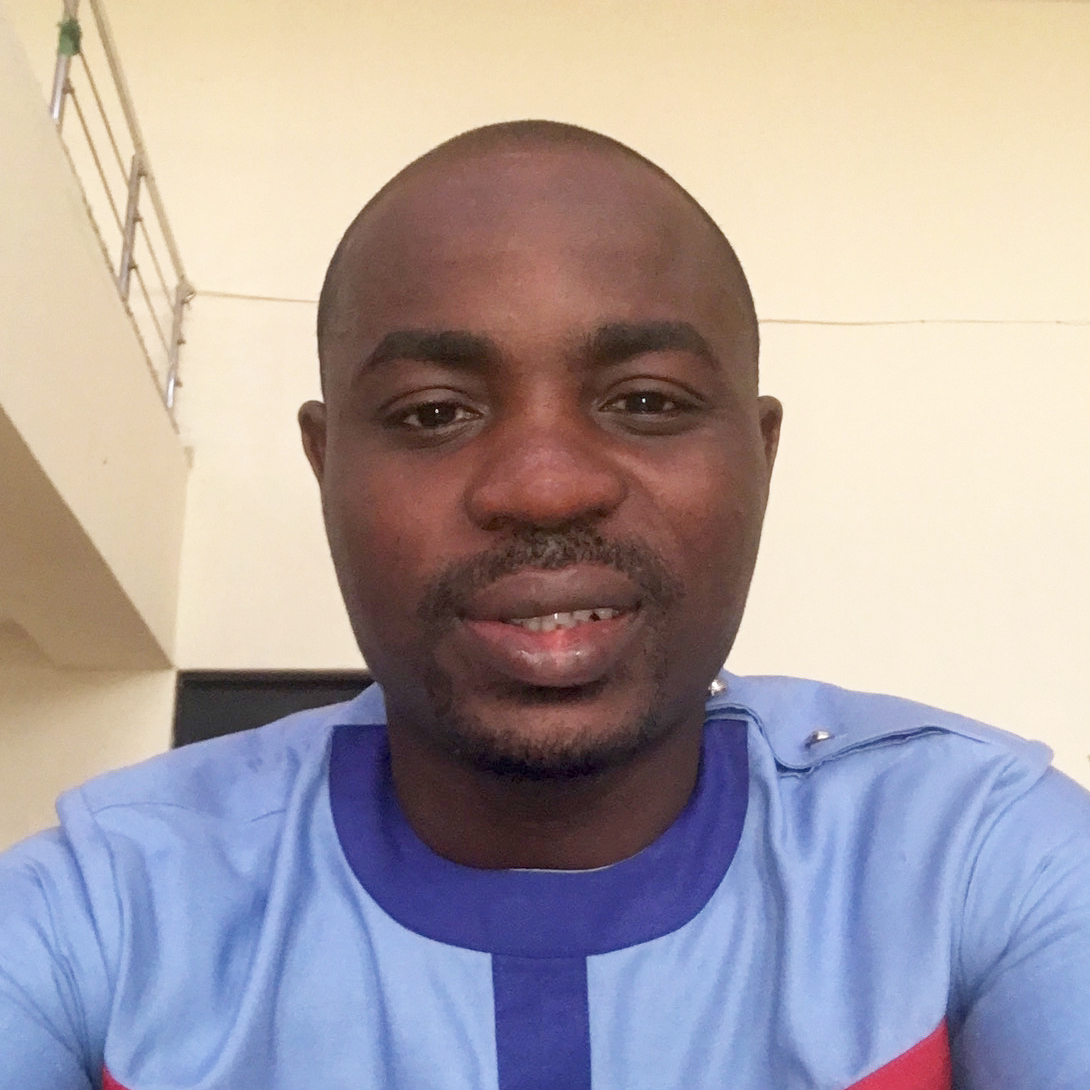I want to hear a bit about you. How did you become involved in LGBTI activism?
The things that pushed me to be an activist centered around issues of sexual and reproductive health and rights, HIV awareness, and human rights violations that LGBTQ community members face every day. One of the first things that led me to become an activist was the issue of sexual and reproductive health and rights among LGBTQ community members, especially men who have sex with men. I saw that a lot of people in the Lagos’ LGBTQ community had HIV and many of them were dying. I felt, and still feel, that people need more awareness around HIV/AIDS. Apart from that, a lot of our community faces discrimination as a result of their sexual orientation or gender identity, even to the extent of being arrested by the police.
 What’s going on with the SARS police force and the #EndSARS movement?
What’s going on with the SARS police force and the #EndSARS movement?
In Nigeria, the police have been violating the rights of people for a very long time. Especially LGBTQ people. SARS police can just come into an LGBTQ person’s house to ransack it. They just pick up our phones and start checking for messages or other things that makes them feel that this person might be LGBTQ. They arrest people and keep them in custody whenever they like. Additionally, police brutality here is something else. People die because of police brutality; people lose their loved ones because of police brutality.
It takes activists like us at ISHRAI to ensure that LGBTQ people are released from police custody. A lot of people might not express themselves properly if arrested, and they face human rights violations from police. They may be beaten and injured when in custody because they’re LGBTQ. We have been advocating against police brutality and we take part in the protests calling for the end of the police’s disrespectful way of treating people. We want to end SARS because we don’t want people discriminating against us, beating us, and assaulting us just because we’re LGBTQ.
Can you tell me more about what it’s like to be LGBTI in Nigeria?
We face a lot of issues from our families all the way up to the state. To be an LGBTQ person in Nigeria is not always easy and many people try to hide their sexuality. Some people want to conform to what society wants, but it’s not really who they are. That’s why a lot of LGBTQ people leave their houses: they want to be able to be themselves. Our organization has a shelter where people can stay for up to a few months to seek safety, be themselves, and ultimately transition back to society. That’s why we work tirelessly to make sure that our organization is there for our community members any time that they need us, whether because of police brutality, or needing a safe space and accommodation where they can stay, or in terms of providing healthcare and human rights services.
 What major programs is ISHRAI working on right now?
What major programs is ISHRAI working on right now?
We provide services for mental health, psychosocial support, and counseling. We realized that a majority of our community members were going through a mental problem or emotional problem. We have a mental health expert who provides psychosocial support, therapy, and counseling to community members who are having some form of mental health issue as a result of their sexual orientation or gender identity. On the sexual health side, we provide HIV testing for our community members as well as prevention and treatment services. We also have support group meetings for our community members living with HIV with support of our in-house psychologists.
In addition to the health resources, we also provide legal aid support. We have lawyers that provide pro bono services to our community members who have been arrested or violated by the police.
How can donations be used by your organization?
We need financial support in terms of sustaining our safe space, providing legal support to our community, and providing healthcare services to our people. We also need to be able to purchase office supplies like laptops, a printer, a photocopier, office chairs, and pay for a strong internet connection, among other things. Donations are much appreciated and help sustain our work, especially in this critical political moment.

